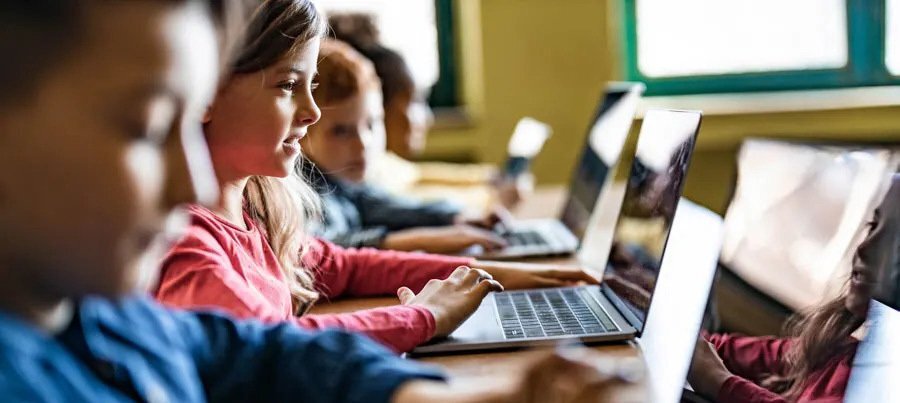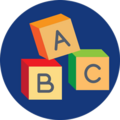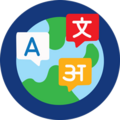Remote Learning in Action

We have been hosting webinars and networking sessions to help educators navigate the challenges of teaching remotely. We know the best way to learn is from teachers and we’re creating a space for Wayne County educators to brainstorm best practices, share ideas, and find solutions.
These sessions were offered for free, and hundreds of Wayne County educators attended one or more of these sessions. We understand that not everyone could attend the live sessions, so we recorded them for you as well.
Whether you’re a remote teaching pro, new to online instruction, or just plain curious, there's something for you!
Essential Literacy Practices for Elementary Educators in Remote Settings
Remote Small Group Reading Instruction
Small group reading instruction, using a variety of grouping strategies, is essential to student learning. Find ways to target instruction to student’s needs in specific aspects of literacy development. Explore practical techniques and protocols that help engage students during small group instruction and ensuring students spend time reading and writing, regardless of setting. Discover ways to provide quick bursts of learning, with meaning-making the ultimate goal of every reading group.
Resources
Virtually Engaging and Connecting with Families
Building positive relationships with families strengthens the connection between home and school and makes for a more meaningful experience for students. Discover ways to engage families during these challenging times.
Resources
Connecting Students with Virtual Texts
Join us as we explore multiple ways to connect students with high quality, digital literature. We know that young learners need opportunities to engage with a variety of books each day, find practical ways to ensure that your students have access to reading materials, as they engage in remote learning. We will dive into several free tools educators might leverage to increase access to engaging texts for children.
Resources
Connecting with Students Through Feedback
Feedback has always served as a natural connector between teachers and their students, but students’ use of feedback is based upon trust. This presentation will examine the importance of formative assessment and the feedback cycle while exploring ways to deliver feedback in remote settings. By prioritizing the student-teacher relationship, teachers foster students’ active engagement with feedback, thereby raising students’ confidence, persistence, and performance.
Resources
Remote Instruction Strategies and Interactive Networking
Small Group Interaction
Small group instruction is an essential instructional practice that is designed to target children’s observed and assessed needs in specific areas of development. Join us for 60 minutes of learning, sharing, and connecting as we focus on implementing high-leverage instructional practices in remote settings. We know the best way to learn is from teachers and we’re creating a space for Wayne County educators to brainstorm best practices, share ideas, and find solutions. Experience a quick community builder, a short professional learning, followed by opportunities to discuss and share ideas with educators from across Wayne County. Whether you’re a remote teaching pro, new to online instruction, or just plain curious, these sessions are for you!
Resources
Effective Feedback
Effective feedback is an essential piece of the formative assessment process. To maintain an effective feedback cycle, teachers need to initiate and sustain students’ participation in the process. This session will provide participants with strategies for giving feedback to students in order to move students forward in their learning. Join us for 60 minutes of learning, sharing, and connecting as we focus on implementing high-leverage instructional practices in remote settings. We know the best way to learn is from teachers and we’re creating a space for Wayne County educators to brainstorm best practices, share ideas, and find solutions. Experience a quick community builder, a short professional learning, followed by opportunities to discuss and share ideas with educators from across Wayne County. Whether you’re a remote teaching pro, new to online instruction, or just plain curious, these sessions are for you!
Resources
- Slide Deck
Fostering Inquiry
Inquiry provides students with the opportunity to formulate questions and the confidence to discover answers and share their own ideas. Join us for 60 minutes of learning, sharing, and connecting as we focus on implementing high-leverage instructional practices in remote settings. We know the best way to learn is from teachers and we’re creating a space for Wayne County educators to brainstorm best practices, share ideas, and find solutions. Experience a quick community builder, a short professional learning, followed by opportunities to discuss and share ideas with educators from across Wayne County. Whether you’re a remote teaching pro, new to online instruction, or just plain curious, these sessions are for you!
Resources
Engaging in Self and Peer Assessment
Formative assessment is a process that is geared towards developing assessment capable learners. A large piece of that entails assisting students as they become more proficient at self and peer assessment. So what can teachers do to foster these practices in their students? Join us for 60 minutes of learning, sharing, and connecting as we focus on implementing high-leverage instructional practices in remote settings. We know the best way to learn is from teachers and we’re creating a space for Wayne County educators to brainstorm best practices, share ideas, and find solutions. Experience a quick community builder, a short professional learning, followed by opportunities to discuss and share ideas with educators from across Wayne County. Whether you’re a remote teaching pro, new to online instruction, or just plain curious, these sessions are for you!
Resources
Increasing Discourse
Student-driven discussions are a powerful strategy that provide teachers with insight into student thinking. This session will provide participants with resources that can increase discourse in an online classroom, such as talk expectations and talk stems. Join us for 60 minutes of learning, sharing, and connecting as we focus on implementing high-leverage instructional practices in remote settings. We know the best way to learn is from teachers and we’re creating a space for Wayne County educators to brainstorm best practices, share ideas, and find solutions. Experience a quick community builder, a short professional learning, followed by opportunities to discuss and share ideas with educators from across Wayne County. Whether you’re a remote teaching pro, new to online instruction, or just plain curious, these sessions are for you!
Resources
Interactive Read-Alouds
How do you put the “Interactive” in a read aloud done in a remote learning environment? Join us as we demonstrate how to use simple remote learning techniques to support development of print concepts and word recognition. Discover ways questioning can be used to encourage higher level thinking. Join us for 60 minutes of learning, sharing, and connecting as we focus on implementing high-leverage instructional practices in remote settings. We know the best way to learn is from teachers and we’re creating a space for Wayne County educators to brainstorm best practices, share ideas, and find solutions. Experience a quick community builder, a short professional learning, followed by opportunities to discuss and share ideas with educators from across Wayne County. Whether you’re a remote teaching pro, new to online instruction, or just plain curious, these sessions are for you!
Resources
Engagement and Classroom Management Strategies
The Skillful Teacher Framework
In this first component of the six -part series on Engagement and Classroom Management Strategies, participants will discover the connections between an educator’s beliefs about teaching and learning and the impact on student behavior. Participants will be given opportunities to explore and share how they currently use their remote platforms to develop and promote teacher/student and peer/peer relationships.
Resources
Equality, Accessibility, and Engagement in Remote Settings
In this second component of the six-part series on Engagement and Classroom Management Strategies, teachers will explore how accessibility, routines, and use of virtual space enhance online remote learning. Participants will discover the common pitfalls of instructional design that impede student engagement with peers, content, and the teacher.
Resources
Management, Time, and Space in Remote Settings
In this third component of the six-part series on Engagement and Classroom Management Strategies, participants will discover the connections between managing their instructional and non-instructional time, the importance of maximizing synchronous and asynchronous learning to render increased student engagement and learning output.
Resources
Expectations, Routines, and Procedures in Remote Settings
In this fourth component of the six-part series on Engagement and Classroom Management Strategies, participants will discover the connections establishing reasonable learning and behavioral expectations, establishing daily routines for learning, and creating systemic procedures that increase student engagement and learning output.
Resources
Building Community and Engagement in Remote Settings
In this fifth component of the six-part series on Engagement and Classroom Management Strategies, participants will explore how building relationships is an essential element of planning instructional activities in synchronous and asynchronous learning times that support increased student engagement and learning output.
Resources
- Slide Deck
Creating a Safe Learning Environment in Remote Settings
In the final component of the six-part series on Engagement and Classroom Management Strategies, participants will examine the importance of a safe learning environment that increases student engagement and academic learning.
Resources
4C Ways to Engage Learners Online
Connect and Communicate
Create classroom norms for synchronous and asynchronous interaction. Learn ways to build student rapport, going beyond the traditional icebreaker activities. Finally, we’ll discuss the importance of creating multiple channels of communication between teachers, parents, and students. Leave with strategies you can use tomorrow.
Resources
Collaborate
Move beyond teacher-student and student-student communication learn about ways students can collaborate in their learning. We will share examples (and non-examples) of collaboration, and how to spot the differences. Attendees will learn about the importance of strategic group assignment as well as defining and assigning group roles. Finally, we will also discuss ways to monitor collaboration to prevent a few group members doing all of the work.
Resources
Co-facilitate
Provide students with opportunities to take responsibility for their learning by giving them voice and choice to what they learn. The teacher can step back as the source and filter of information and become an active participant in the learning process, providing guidance only when appropriate. Discover how to maintain sanity and monitor progress in an online environment while giving students more options.
Resources
Continue and Reflect
Enhance the metacognitive abilities of your students after a learning experience is complete, and how it can be used as a springboard for future learning. Learn how to create an environment of reflection and exploration for your students to help improve each learning experience.
Resources








